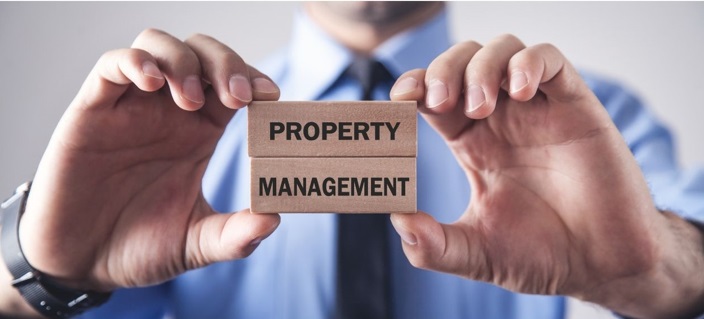Imagine this…
Scenario: Apartment Complex Property Management and Maintenance

Background: John owns a medium-sized apartment complex in a suburban area. He has hired a professional property management company to oversee the day-to-day operations of the complex, including tenant relations and property maintenance.
Property Management:
- Tenant Relations: The property management company is responsible for advertising vacant units, screening prospective tenants, and handling lease agreements. They ensure that tenants sign leases, pay rent on time, and understand the rules and regulations of the complex.
- Rent Collection: On the first of each month, the property management company collects rent from tenants, processes payments, and sends monthly reports to John, the property owner.
- Maintenance and Repairs: The property management company employs a team of maintenance technicians who conduct regular inspections of the property. They address maintenance requests promptly, such as fixing plumbing issues, repairing appliances, and ensuring that common areas like the swimming pool and fitness center are well-maintained.
- Property Marketing: When a unit becomes vacant, the property management company immediately begins marketing it. They take photos, create listings, and use various online platforms to attract potential tenants.
- Financial Management: The property management company handles the property’s financial aspects, including budgeting for maintenance expenses, managing property funds, and providing regular financial reports to John.
Property Maintenance:
- Routine Maintenance: The maintenance team conducts routine tasks like cleaning common areas, maintaining the landscaping, and ensuring that exterior lighting is working correctly.
- Emergency Repairs: One day, a tenant reports a burst pipe in their unit. The property management company’s maintenance team responds immediately to address the issue, preventing further damage and ensuring the tenant’s safety and comfort.
- Roof Repair: During a routine inspection, the maintenance team identifies a minor roof leak. They schedule and oversee the repair to prevent water damage to the interior of the building.
- Regular Inspections: The maintenance team conducts quarterly inspections of all units and common areas to identify maintenance needs. This proactive approach helps prevent larger issues from developing.
In this real-life situation, property management and maintenance work hand in hand to ensure the apartment complex is well-managed, tenants are satisfied, and the property is properly maintained. John, as the property owner, relies on the property management company to handle the day-to-day tasks and maintenance, allowing him to focus on investment strategy and overall property management. This partnership between the property owner and the management company demonstrates the importance of efficient property management and maintenance in real estate.
What is Property Management and Maintenance?
Property management and property maintenance are two essential aspects of owning and renting out real estate. Here’s an explanation of each term:

1. Property Management:
Property management involves the overall operation and oversight of real estate properties, whether they are residential or commercial, with the primary goal of maximizing the property’s value and income while ensuring a positive experience for tenants. Property management services are typically provided by professional property management companies or individual property managers.
Key responsibilities of property management include:
- Tenant Relations: Property managers are responsible for finding and screening tenants, negotiating lease agreements, and handling tenant inquiries, complaints, and requests.
- Rent Collection: They collect rent payments from tenants, enforce lease terms, and address late payments or non-payment issues.
- Maintenance and Repairs: Property managers coordinate and oversee maintenance and repairs, ensuring that the property remains in good condition and addressing any issues promptly.
- Property Marketing: When vacancies arise, property managers advertise and market the property to attract new tenants.
- Financial Management: Property managers handle the financial aspects of the property, including budgeting, accounting, and financial reporting to property owners.
- Legal and Regulatory Compliance: Property managers ensure that the property complies with local, state, and federal laws and regulations, including tenant rights, fair housing laws, and building codes.
- Property Inspections: Regular property inspections are conducted to assess the condition of the property and identify any maintenance or repair needs.
2. Property Maintenance:
Property maintenance is a subset of property management that specifically focuses on the physical upkeep and repair of a property. Proper maintenance is essential for preserving the property’s value, ensuring safety, and providing a comfortable living or working environment for tenants.
Property maintenance tasks may include:
- Routine cleaning and upkeep of common areas.
- HVAC system maintenance and servicing.
- Plumbing and electrical repairs.
- Landscaping and outdoor maintenance.
- Painting and interior repairs.
- Roof and structural maintenance.
- Pest control.
- Emergency repairs, such as fixing leaks or electrical issues.
- Regular inspections to identify maintenance needs.
Property maintenance can be carried out by in-house maintenance teams, contracted service providers, or property management companies, depending on the size and complexity of the property.
In summary, property management encompasses a wide range of responsibilities related to the overall operation and financial management of a property, including tenant relations and property maintenance. Property maintenance, on the other hand, specifically focuses on the physical upkeep and repair of the property to ensure it remains in good condition and meets the needs of tenants. Both aspects are critical for property owners and landlords to maintain the value and functionality of their real estate investments.
Why is it important?

As a first-time property buyer, it is important to consider the management and maintenance of the property, especially if you are considering renting it out. Property management involves overseeing the day-to-day operations of the property, including finding and screening tenants, collecting rent, handling repairs and maintenance, and ensuring compliance with legal and safety regulations.
It is important to have a reliable and professional property management company or individual to handle these responsibilities. This will ensure that your property is well-maintained, tenants are satisfied, and your investment is protected. A good property manager can also help you maximize your rental income and minimize your expenses.
In addition to property management, regular maintenance is also important to keep your property in good condition and attract and retain tenants. This includes regular inspections, cleaning, repairs, and upgrades. A well-maintained property not only improves its value but also enhances tenant satisfaction and can result in higher rental income.
Therefore, as a first time property buyer, it is crucial to consider the costs and benefits of property management and maintenance, and to ensure that you have a plan in place for both before purchasing a property.
Effective property management and proactive maintenance not only enhance the value of your real estate investment but also provide peace of mind. By entrusting professionals to handle the complexities of property management and ensuring timely maintenance, you can optimize your property’s performance and create a positive living or working environment for your tenants, all while maximizing your returns. Contact us!
Follow us!
For more details you may also follow our Facebook, Instagram, and YouTube!




